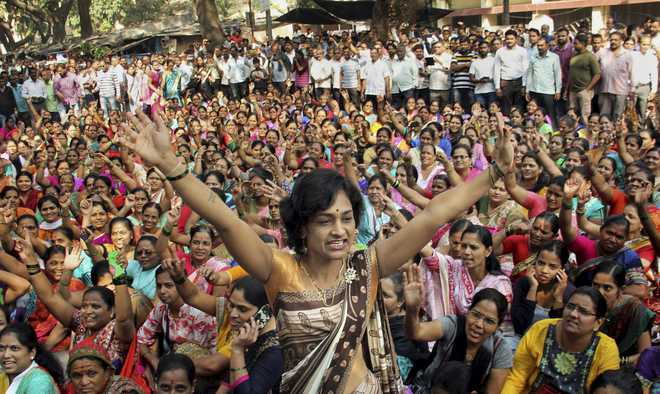Quota will have little impact in Punjab
Ruchika M Khanna
Tribune News Service
Chandigarh, January 10
The Bill passed by Parliament providing 10 per cent reservation for economically backward upper castes is unlikely to have any impact in Punjab, when made a law.
At 63.2 per cent, Punjab has the highest concentration of Scheduled Castes and Other Backward Classes in the country. With just over 7 per cent jobs in the organised sector (private and public) and no fresh jobs being created in the wake of the economic downturn, the quota for the poor among the upper classes will not impact the remaining 36 per cent population in Punjab.
The Punjab Government, which is the biggest employer in the state (3.5 lakh jobs), made no recruitments for over a decade until 2016 and even after that these have been minuscule.
The reservation for economically weaker sections, if and when it clears the legal hurdle, is likely to benefit Christians and Muslims more than upper caste Hindus or Jat Sikhs, most of whom do not meet the norms for quota in terms of land-holding (5 acres) and annual income (up to Rs 8 lakh).
The SAD-BJP government made a feeble attempt to include Jat Sikhs in the OBC category in 2014 prior to the parliamentary elections. A resolution was passed in the Assembly. But the matter ended there. The then government realised that in a state with 31.9 per cent SCs and 31.3 per cent OBCs, it would be politically “damaging” to reduce the quota for Dalits to benefit the Jats. Prof Manjit Singh, an eminent sociologist, dismissed the Centre's move as vote bank politics.
“Punjab mostly has small and marginal farmers (less than 5-acre holding) with an annual income less than Rs 8 lakh. But what good is the reservation when there are no jobs?” he asked.
Economist Gian Singh, who has a body of work on Punjab’s lower strata peasantry, observed: “Whatever little jobs that are available in Punjab are being filled on contractual basis. Hence, there is no quota. Of the 7.2 per cent jobs in the formal or organised sector, 2.2 per cent are on contractual basis. It is only when vacancies are created for regular employment that reservation for the General Category will matter.”
Shyam Lal Sharma of the General Categories Welfare Federation (Punjab) welcomed the reservation but admitted that it would have little impact in Punjab, given the population of Dalits in the state.









